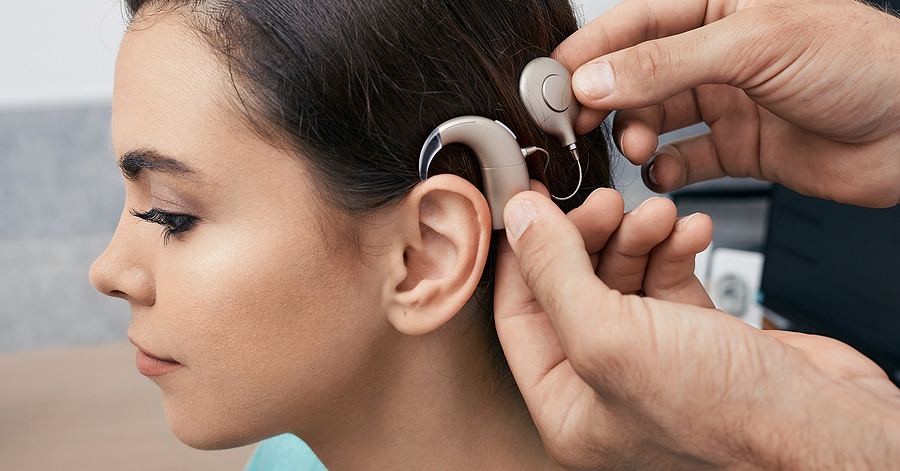If you suffer from hearing loss, you may be considering the feasibility of cochlear implants vs hearing aids. While both devices are designed to help those with hearing loss communicate better, they go about doing so in very different ways.
For the most part, a thorough examination will be key in determining which option is best for you. Reach out to the team at North Shore Hearing today for more. In the meantime, continue reading to learn more about cochlear implants vs hearing aids and which option may be best for you.
What Are Hearing Aids?
Today, an estimated 12 million Americans rely on hearing aids. These small, electronic devices are engineered to amplify sounds as they move into the ear. The best hearing aids are tailored exclusively for you and are prescribed by a healthcare professional. While there are several styles of hearing aids, they all have these three basic components:
- A microphone that picks up sound
- A speaker that delivers the sound into the ear
- An amplifier that makes these sounds louder.
Hearing aids work best for people and children who suffer from mild to moderate sensorineural hearing loss. Hearing aids can be classified into two primary types:
- Behind-the-ear (BTE) and
- In-the-ear (ITE) models.
There are several shapes, styles, colors, and sizes available in each model.
What Are Cochlear Implants
Currently, it’s estimated that only 50,000 Americans have cochlear implants. These small electronic devices are engineered to provide sound to those who suffer from profound or significant hearing loss. Similar to hearing aids, cochlear implants can help improve your hearing ability hear.
The key difference is that cochlear implants are surgically implanted underneath the skin behind your ear. Because of this, cochlear implants are not removable. It’s also important to understand that cochlear implants will not restore hearing. Instead, these implants work to stimulate the auditory nerve directly, which can help users better understand speech. Cochlear implants are usually the solution for those who were not able to be helped by hearing aids.
How Do Cochlear Implants Work?
The cochlear implant functions similar to a prosthetic for the damaged part of your inner ear. All cochlear implants are made up of two parts:
- An internal element that sends electric pulses to your auditory nerve
- An outer component that has a processor and microphone.
The implant receives sounds via the outer component. Then, this component processes the data and transmits it to the internal element, which sends information to the brain as electric pulses.
What’s the Difference Between Cochlear Implants and Hearing Aids
The most obvious difference between cochlear implants and hearing aids is that the latter is surgically implanted. However, there are other attributes that set the two apart.
Cochlear Implants vs Hearing Aids: Who Is the Ideal User?
Hearing aids are virtually a universal solution for those who have mild to profound hearing loss. Hearing aids are viable solutions for most people who suffer from:
- Conductive hearing loss that stems from the middle ear or outer ear, or
- Sensorineural hearing loss stems from damage to the hearing nerve or inner ear.
Cochlear implants are more ideal for those who have moderate to profound hearing loss. At the same time, cochlear implants are used for those who suffer from sensorineural hearing loss that stems from the hearing nerve or inner ear.
Cochlear Implants Are a More Selective Solution
Cochlear implants are a much more selective solution for those with particular needs. Adults and children who are severely hard-of-hearing or deaf may be fitted for cochlear implants. On the other hand, hearing aids are appropriate for virtually all levels of hearing loss.
Cochlear Implants Work Differently from Hearing Aids
While both devices are designed to assist with hearing, they do so in a much different manner. Cochlear implants are slightly more technologically complex. Instead of using speakers and microphones to amplify sounds as the hearing aids do, cochlear implants are designed to channel sounds. They bypass the damaged cochlea and transmit sounds directly to the auditory nerve.
Differences in the Sound Produced
Hearing aids work to amplify the sounds that you directly hear. These sounds may sound a little computer-aided or muffled compared to natural hearing. This is due to the sounds being enhanced and filtered to the proper frequencies to make them more audible. On the other hand, cochlear implants users report the sounds, especially speech, are much more digital in nature.
Speech Understanding
With hearing aids, the ability to hear speech can range from fair to excellent. Most users are able to understand 50% or more of words spoken — according to a Duke Health study. In contrast, the ability to hear speech with cochlear implants can be fair to poor. Users were able to understand approximately 50% or less of speech spoken during a test performed by Duke Health.
Cost of Cochlear Implants vs Hearing Aids
Cochlear implants can cost up to $100,000; while hearing aids can be anywhere from $3,000 to $6,000 a pair. Insurance may cover some or all of the cost.
Timing to Adapt to Hearing
Cochlear implants can take users anywhere from six to 12 months or more to adapt to the style of hearing. Hearing aids take approximately two weeks or fewer for users to adapt to hearing.
Contact North Shore Hearing P.C.
At North Shore Hearing P.C., we are your local hearing experts. After performing a comprehensive hearing exam, we will explain all the options available to you. We will also discuss the pros and cons of hearing aids vs cochlear implants. Our goal is to understand your unique lifestyle, needs, and goals and guide you to the best decision.
Contact North Shore Hearing P.C. today to schedule an examination.


